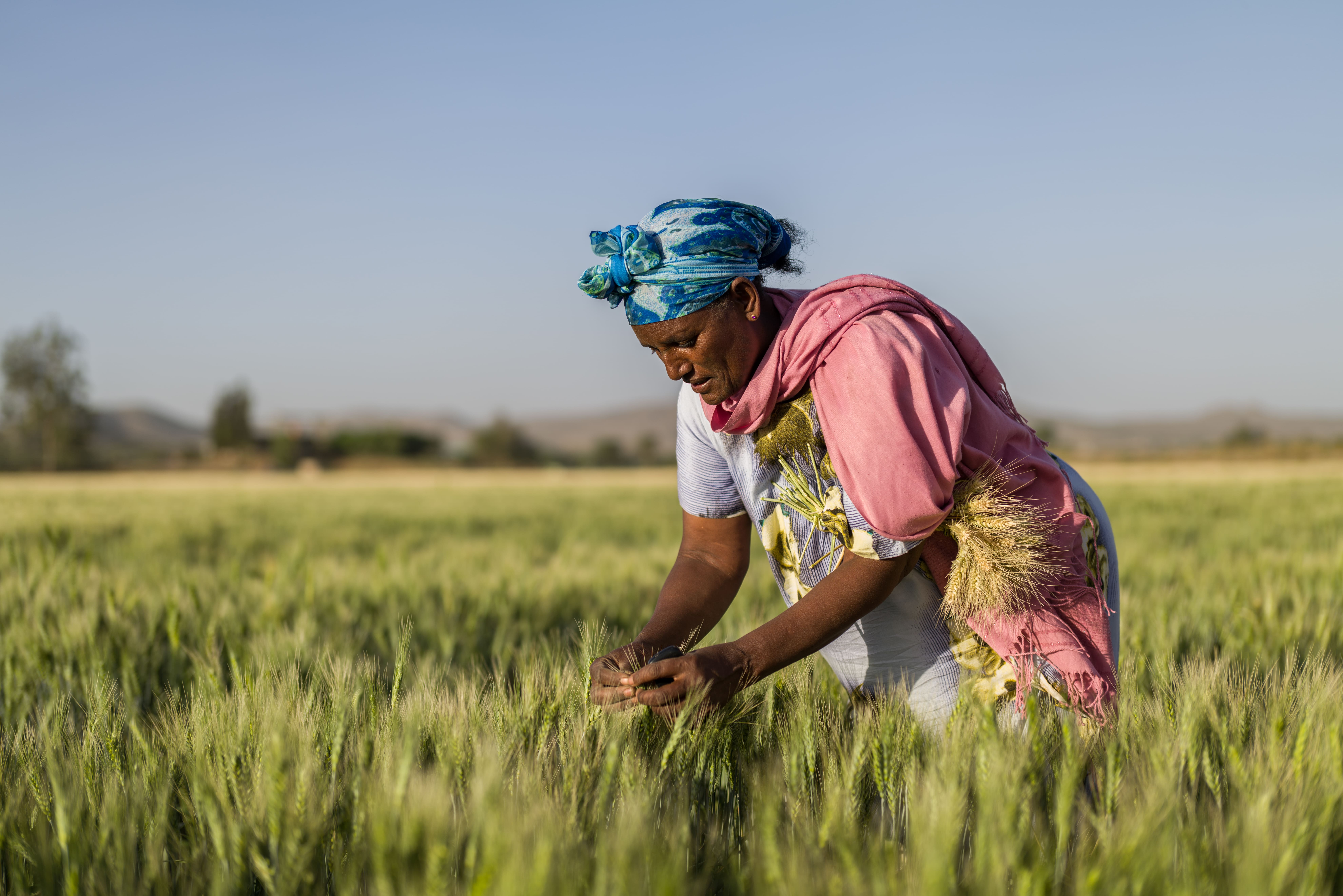Key Takeaways:
- The Climate Resilient Wheat Value Chain Development (CREW) Project in Ethiopia is a $94 million initiative to transform the country from a wheat importer to a self-sufficient producer and exporter.
- The African Development Fund, the Netherlands, OCP-Africa, the Ethiopian government, and the Global Center on Adaptation fund the project.
- CREW aims to support 500,000 smallholder farmers, improve wheat productivity, and expand irrigation in Afar and Somali regions.
- The project is expected to benefit 2.3 million people, increasing household incomes, creating jobs, and enhancing food security.
- The project includes components focused on sustainable wheat farming, post-harvest infrastructure, and innovative agri-finance mechanisms.
Major Wheat Initiative Launched in Ethiopia
In a concerted effort to achieve agricultural self-sufficiency, the African Development Bank Group, the government of Ethiopia, the Netherlands, OCP-Africa, and the Global Center on Adaptation (GCA) have launched the Climate Resilient Wheat Value Chain Development (CREW) Project. This $94 million initiative aims to transform Ethiopia from a wheat importer into a self-sufficient producer and exporter.
Funding and Contributions
The project is funded through multiple grants:
- The African Development Fund (ADF) is providing $54 million.
- The Netherlands will contribute $20 million.
- OCP-Africa and the Ethiopian government are each providing $10 million.
- The Global Center on Adaptation (GCA) will extend a $300,000 grant through the Africa Adaptation Acceleration Program (AAAP).
Objectives and Benefits
The CREW project is designed to support 500,000 smallholder farmer households in Ethiopia's Afar, Amhara, Oromia, and Somali states. By increasing wheat productivity from three to four tons per hectare, it is projected to generate an additional 1.62 million tons of wheat. Additionally, the project will expand irrigation into the lowlands of Afar and Somali regions, benefiting 2.3 million people, half of whom are women. This initiative is expected to boost household incomes, create jobs, foster entrepreneurship, and enhance food and nutrition security.
Project Components
The CREW project comprises two main components:
- Improving Wheat Farming:
- The project will develop better seeds, enhance soil health, and rehabilitate/build irrigation systems and access roads.
- It aims to promote private sector-led sustainable farm mechanization, focusing on climate-friendly farming methods.
- Post-Harvest and Market Infrastructure:
- It will expand post-harvest infrastructure and enable access to agricultural finance through innovative mechanisms.
Launch and Statements
The official launch took place in Semera, Afar Regional State, in May, with Ethiopia’s Minister of Agriculture, Dr. Girma Amente, highlighting the project's alignment with the country’s Agricultural Development Plan and Ten-Year Development Plan. Dr. Amente noted, “The CREW project is aligned with over 80 percent of the objectives of Ethiopia’s Ten-Year Development Plan, the overarching development agenda for the country.”
The President of Afar Regional State, Mr. Awol Arba, also expressed optimism about the project's potential for irrigated wheat development in his state.
Dr. Abdul Kamara, the African Development Bank Group’s Deputy Director General for East Africa, emphasized the project's role in complementing the Bank’s $1.2 billion investments in Ethiopia across various sectors. He pointed out the project's design to scale up and sustain the outcomes of Ethiopia’s Wheat Revolution, which saw wheat yields increase from two to four tons per hectare due to heat-tolerant wheat varieties. “The Bank is proud to be a leading financier in these critical areas seeking to accelerate Ethiopia’s economic transformation and development,” said Dr. Kamara.
Mr. Tiest Soondal from the Netherlands Embassy noted the Netherlands' commitment to addressing humanitarian, development, and food security goals in Ethiopia. “The Kingdom of the Netherlands is the largest EU investor in Ethiopia and is committed to addressing the nexus of humanitarian, development, and food security goals,” he said.
OCP-Africa CEO Dr. Mohamed Anouar Jamali highlighted their support in tackling soil salinity and acidity issues through science-based soil health and fertility solutions. “This includes developing site-specific soil health and fertility solutions based on comprehensive assessments of soil, climate, and cropping systems to provide science-based recommendations,” said Dr. Jamali.
Image provided by ADB


